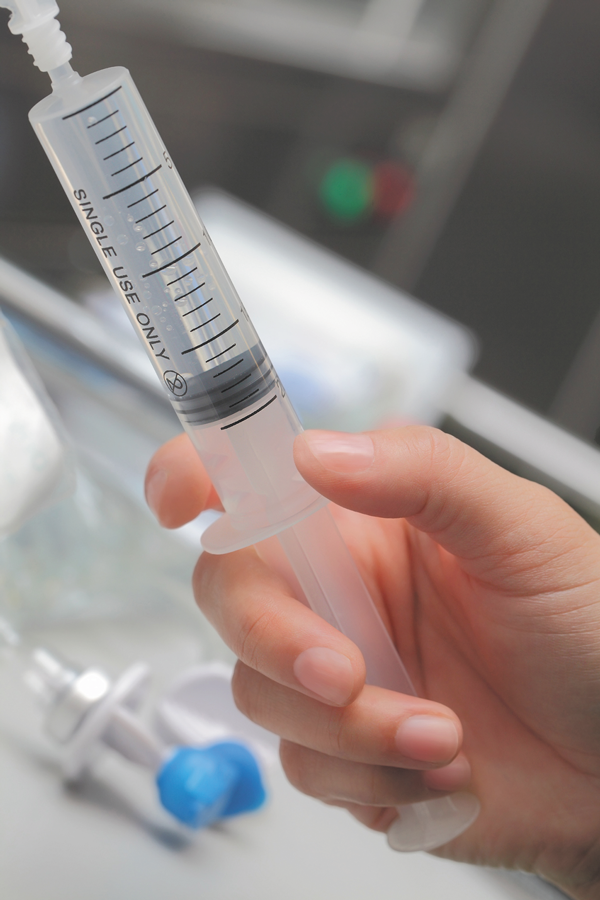
Trying to lose weight? Be careful not to lose muscle

Is your skin problem actually an autoimmune condition?

People with diabetes face higher risk of hearing loss

Antibiotic-free fixes for recurrent UTIs

Musculoskeletal syndrome of menopause: When menopause makes you ache all over

When can older women stop getting mammograms?

To lose weight, especially harmful belly fat, combine diet and exercise

Can men hold off on treating recurring prostate cancer?

The 7 types of rest and why we need them all

What are the early warning signs of cervical cancer?
Stroke Archive
Articles
Urinary tract infections: A possible trigger for stroke
Research we're watching
Infections — especially those in the urinary tract, known as UTIs — may raise the risk of a stroke, a new study finds.
Researchers examined the electronic medical records of more than 191,000 stroke patients to see if they'd been hospitalized or gone to an emergency room for an infection shortly before the stroke. They tracked infections of the abdomen, blood, respiratory tract, skin, or urinary tract.
Red meat, TMAO, and your heart
A substance called trimethylamine N-oxide, which is produced when your body digests red meat, may raise the risk of cardiovascular problems.
Experts used to think that red meat raised your risk of heart disease simply because it was high in saturated fat. But today that picture has gotten more complicated thanks to the discovery of a metabolite — a substance produced during digestion and metabolism — called trimethylamine N-oxide, or TMAO.
According to a news article published June 11 in JAMA, three recent analyses have linked high blood levels of TMAO with a higher risk for both cardiovascular disease and early death from any cause. In one of those studies, researchers found that people with higher levels of TMAO in their blood may have more than twice the risk of heart attack, stroke, or other serious cardiovascular problems, compared with people who have lower levels. Other studies have found links between high TMAO levels and heart failure and chronic kidney disease.
What is a bubble study?
Ask the doctor
Q. My cardiologist mentioned that he was going to do a "bubble study" during my echocardiogram. What is that?
A. During an echocardiogram, a technician uses a probe that emits high-frequency sound waves (ultrasound) that "echo" off the structures of your heart. The waves, which are translated into video images visible on a monitor, can reveal in-formation about your heart's structure and function. A bubble study gives added information, as it can identify potential blood flow issues inside your heart.
Feel healthy? You still may be at risk for heart disease
In the journals
Even if you believe you're in excellent health, you could still be at risk for a heart attack or stroke, suggests a study of more than 6,800 people, average age 62, published Feb. 15, 2019, in JAMA Network Open. At the study's beginning, participants rated their health as excellent, very good, good, or poor/fair. (More than half the men reported being in very good or excellent health.)
Next, everyone had a coronary artery calcium (CAC) scan, which detects plaque buildup in the arteries of the heart. The scores range from zero to 100 and higher, with zero meaning no plaque buildup is present and cardio-vascular disease risk is at its lowest.
Does drinking alcohol raise the risk of stroke?
Research we're watching
Contrary to observations that moderate drinking (one or two drinks per day) protects against stroke, a new study finds that stroke risk may rise with increasing alcohol intake.
The findings, which were published online April 4 by The Lancet, come from a study involving 160,000 Chinese adults who reported their drinking habits. They also were tested for gene variants common in Asian populations that cause an unpleasant flushing reaction after drinking. Only 2% of women reported drinking alcohol, compared with 33% of men, so the findings focus mainly on men.
Ministroke: A warning sign of a major problem
Even short-lived, subtle stroke symptoms should be evaluated.
Imagine trying to write a note, but it feels like you're moving the pen through wet concrete. Or you suddenly can't see normally — it's as if a black curtain has dropped over one of your eyes.
If these odd symptoms last for only a few minutes, you might be tempted to brush them off and blame muscle cramps or fatigue. Don't make that mistake, says Dr. Christopher Anderson, director of Acute Stroke Services at Harvard-affiliated Massachusetts General Hospital. Both of the above scenarios are examples of a possible transient ischemic attack (TIA), commonly referred to as a ministroke. Caused by a temporary lack of blood in part of the brain, a TIA is a warning sign that you are at risk for a stroke.
Deep-vein blood clots: What you need to know
Learn how to recognize and prevent this dangerous condition, known as venous thromboembolism, or VTE.
When a blood clot blocks an artery supplying the heart or the brain, the result is a heart attack or stroke. Most Americans are familiar with these two serious health threats. But they're probably less familiar with the dangers of venous thromboembolism, or VTE — a clot that forms in a vein.
A clot in the leg or arm, known as deep-vein thrombosis, can cause pain, swelling, and redness in the affected limb. But the real threat occurs if the clot breaks off and travels to the lungs, causing a pulmonary embolism.
The combo of Mediterranean diet and statins can protect against a fatal second heart attack
In the journals
People who have had a heart attack or a stroke are routinely prescribed a statin to reduce the risk of a repeat event. But by also following a Mediterranean-style diet, they can improve their chance of living longer, suggests a study in the Feb. 1, 2019, issue of the International Journal of Cardiology.
The study looked at 1,180 people, average age 68, who had at least one previous heart attack or stroke, and recorded their statin use and diet intake at the study's beginning. The researchers identified the people who faithfully followed a Mediterranean-style diet. A Mediterranean-style diet involves consuming medium to high amounts of whole fruits and vegetables, whole grains, legumes and nuts, olive oil, and poultry and fish, with limited amounts of red meat, alcohol, and dairy.
Lessons about brain health from a landmark heart study
At 70 years and counting, the Framingham Heart Study continues to help doctors better understand stroke, dementia, and heart disease.
Image: © BHPix/Getty Images
In 1948, more than 5,200 people living in a town just west of Boston volunteered for what has evolved into the longest running and best-known study of the causes of heart disease. But the multigenerational Framingham Heart Study has also revealed important clues about brain disorders — most notably stroke but also cognitive decline and dementia (see "Framingham's brain health findings").
In the early 1960s, Framingham researchers coined the term "risk factor," which refers to a characteristic or exposure that raises a person's odds of developing a disease. Over the following decades, they uncovered many such factors for heart disease, including cigarette smoking, obesity, lack of physical activity, and high blood pressure. These habits and conditions also turned out to predispose people to stroke and dementia, thereby establishing that what harms the heart is also bad for the brain.
Fish oil and vitamin D supplements might offer some health benefits
In the journals
Vitamin D and omega-3 fatty acid supplements have had mixed results when it comes to preventing heart attacks, strokes, and cancer in people who have already developed these problems or are at high risk for them. Yet a new study published online Nov. 10, 2018, by The New England Journal of Medicine found they may actually prevent these conditions among people who have never had these problems before.
Researchers recruited almost 26,000 people, ages 50 and older, who had no history of heart disease or cancer. The participants were divided into four groups. People in one group were given daily doses of 2,000 international units of vitamin D (an amount found to be linked to lower disease risk in observational studies) and 1 gram of a drug called Lovaza, which contained 840 milligrams of omega-3s (two to four times the amount in two servings of fish per week). The second group took vitamin D and a placebo, the third group took the omega-3s and a placebo, and the final group took two placebos. After more than five years, the researchers found that those given omega-3s were 28% less likely to suffer a heart attack compared with those given a placebo. Those who ate fewer servings of fish (less than the average of 1.5 servings per week) appeared to have a greater benefit from the additional omega-3s while those with higher fish intake had minimal benefit.

Trying to lose weight? Be careful not to lose muscle

Is your skin problem actually an autoimmune condition?

People with diabetes face higher risk of hearing loss

Antibiotic-free fixes for recurrent UTIs

Musculoskeletal syndrome of menopause: When menopause makes you ache all over

When can older women stop getting mammograms?

To lose weight, especially harmful belly fat, combine diet and exercise

Can men hold off on treating recurring prostate cancer?

The 7 types of rest and why we need them all

What are the early warning signs of cervical cancer?
Free Healthbeat Signup
Get the latest in health news delivered to your inbox!
Sign Up











